5 reasons to work out that go beyond weight loss
Work up a sweat for these major health benefits.
Updated on July 15, 2025
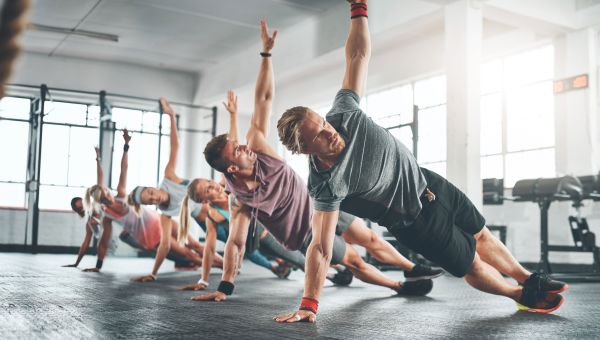
Want to get stronger, manage your weight, and boost your energy levels? Regular workout sessions can help accomplish all of those things.
But there are other reasons why exercise deserves a spot on your schedule that have nothing to do with weight management—and they could boost your quality of life. Learn about more major payoffs from your workouts.

It Can Make Sex More Enjoyable
Research has shown that exercise outside the bedroom can turn up the heat inside. In one 2019 study published in the Journal of Sexual Medicine, researchers looked at data from over 6,000 people and found that for those who are at risk for sexual dysfunction, rigorous exercise can help. And past studies have found that highly active men tend to have better erectile and sexual function.
The authors of a 2020 systematic review published in the International Journal of Environmental Research and Public Health also note that, for women, exercise can positively affect hormones like oxytocin, cortisol, and estrogen. This, in turn, can help with arousal.
A 2018 review in Sexual Medicine Reviews found that short bursts of intense exercise can directly improve sexual arousal in women, in part because it increases blood flow. It also showed that a longer-term, regularly active lifestyle can indirectly help arousal by improving mood and heart health.
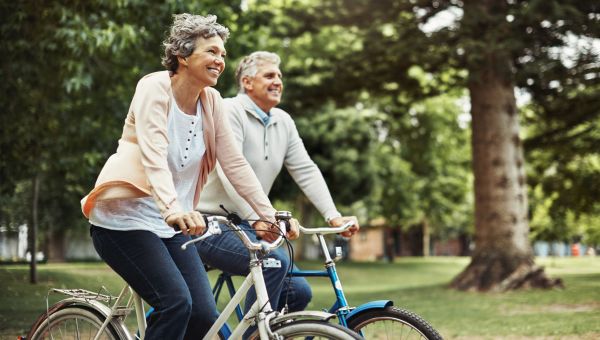
You May Live Longer
According to the Centers for Disease Control and Prevention (CDC), 1 in 10 premature deaths are caused by inactivity. A 2018 study in Preventing Chronic Disease concluded that regular and adequate exercise levels can likely reduce the risk of dying prematurely.
Just 150 minutes a week of moderate intensity cardio (such as brisk walking) or 75 minutes of vigorous intensity cardio (such as running), can help prevent you from early death. If you can get closer to 300 minutes a week of moderate exercise or 150 minutes of more strenuous activity, it’s even better. In fact, the more exercise you get, the greater the health benefits. Keep in mind that every minute of exercise counts towards this weekly goal. Even a short walk offers health perks.
The CDC also reports that regular exercise decreases your risk of many life-threatening conditions, including heart disease, type 2 diabetes, stroke, and certain cancers, such as colon and breast cancer. Gardening, dancing, taking your dog for a brisk walk, and other moderate-intensity activities all count as exercises that help.
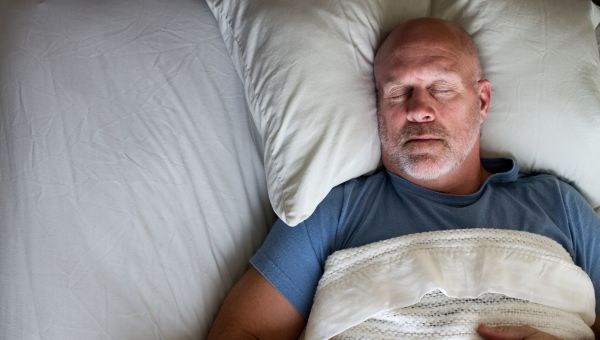
You’ll Likely Sleep Better
It seems that active days can bring restful nights—for just about everyone. Studies abound that show the benefits of exercise for sleep quality.
One 2017 study published in Sleep Health suggested that for teens and young adults, more time being sedentary leads to lower quality sleep. More recently, a 2022 study of undergraduates published in the Journal of American College Health found that inconsistent exercise was associated with poor sleep and more fatigue throughout the day.
A 2020 study in the European Journal of Clinical Investigation looked at the effects exercise had on the sleep quality of middle-aged, sedentary adults. Sure enough, after 12 weeks of exercise, both subjective (participant-reported) and objective (data-supported) sleep quality improved.
For older adults, the data is also clear: Exercise helps us get a good night’s sleep. A 2022 meta-analysis of 35 studies on the effects of exercise on sleep quality in older adults found that the best recipe for good sleep was a combination of muscle endurance training and walking. This combo beat out other approaches to sleep quality enhancement like tai chi, cognitive behavioral therapy, and yoga.
If you have depression, you may also experience insomnia. A 2021 meta-analysis of 17 studies published in Sleep Medicine Reviews found that vigorous strength exercise was very effective for improving sleep quality in people with depression.
And studies have shown that the sleep quality for people with many other conditions can be helped through exercise, including those with Parkinson’s and type 1 diabetes.
One finding that might surprise you: A 2019 review published in Sports Medicine found that for healthy adults, exercising in the evening does not have a bad effect on sleep quality. It might even have good effects—just avoid doing vigorous exercise less than an hour before bedtime.

It Can Help Keep Your Mind Sharp
There is a lot of evidence that regular exercise throughout your lifetime is associated with better memory and cognitive skills. For example, long-term exercise—especially exercises that require coordination—helps support working memory in kids and adolescents, according to a 2022 study in Trends in Cognitive Science.
And results from a 2020 study in Applied Physiology, Nutrition, and Metabolism showed that aerobic exercise might improve memory in older adults. The more intense the exercise, the better. Specifically, high-intensity interval training beat out moderate training or stretching.
Many studies have even suggested that regular exercise can literally help parts of your brain grow larger, including those that control memory and thinking.

It Could Help Stave Off Illness
According to the CDC, exercise may be a tool for keeping your immune system strong. In a 2021 review published in the Journal for ImmunoTherapy of Cancer, researchers also noted that exercise can help protect and act against the detrimental effects of both aging and obesity on the immune system. It also boosts the health, and may boost survival, of those with cancer.
Regular exercise may lead to less frequent upper respiratory tract infections, like colds and the flu. It may even provide some protection against COVID-19, alongside other proven protective interventions, like vaccines.
But it seems the old adage “everything in moderation” applies to immune-strengthening exercise, too. While moderate exercise seems to help strengthen the immune system, intense exercise on a regular basis (as with professional athletes) might leave you more open to minor infections.

Fergus KB, Gaither TW, Baradaran N, et al. Exercise Improves Self-Reported Sexual Function Among Physically Active Adults. J Sex Med. 2019 Aug;16(8):1236-1245.
Simon RM, Howard L, Zapata D, et al. The association of exercise with both erectile and sexual function in black and white men. J Sex Med. 2015 May;12(5):1202-10.
Sgrò P, Di Luigi L. Sport and male sexuality. J Endocrinol Invest. 2017 Sep;40(9):911-923. doi: 10.1007/s40618-017-0652-8.
Carcelén-Fraile MDC, Aibar-Almazán A, Martínez-Amat A, et al. Effects of Physical Exercise on Sexual Function and Quality of Sexual Life Related to Menopausal Symptoms in Peri- and Postmenopausal Women: A Systematic Review. Int J Environ Res Public Health. 2020 Apr 14;17(8):2680.
Stanton AM, Handy AB, Meston CM. The Effects of Exercise on Sexual Function in Women. Sex Med Rev. 2018 Oct;6(4):548-557.
Centers for Disease Control and Prevention. Why Should People Be Active? Page last reviewed July 14, 2022.
Carlson SA, Adams EK, Yang Z, et al. Percentage of Deaths Associated With Inadequate Physical Activity in the United States. Prev Chronic Dis. 2018 Mar 29;15:E38.
U.S. Department of Health and Human Services. Physical Activity Guidelines for Americans, 2nd edition. 2019.
Lee DH, Rezende LFM, Joh HK, et al. Long-Term Leisure-Time Physical Activity Intensity and All-Cause and Cause-Specific Mortality: A Prospective Cohort of US Adults. Circulation. 2022 Aug 16;146(7):523-534.
Centers for Disease Control and Prevention. Measuring Physical Activity Intensity. Page last reviewed June 3, 2022.
Kakinami L, O'Loughlin EK, Brunet J, et al. Associations between physical activity and sedentary behavior with sleep quality and quantity in young adults. Sleep Health. 2017 Feb;3(1):56-61.
Bodziony V, Stetson B. Associations between sleep, physical activity, and emotional well-being in emerging young adults: Implications for college wellness program development. J Am Coll Health. 2022 May 12:1-11.
Jurado-Fasoli L, De-la-O A, Molina-Hidalgo C, et al. Exercise training improves sleep quality: A randomized controlled trial. Eur J Clin Invest. 2020 Mar;50(3):e13202.
Hasan F, Tu YK, Lin CM, et al. Comparative efficacy of exercise regimens on sleep quality in older adults: A systematic review and network meta-analysis. Sleep Med Rev. 2022 Oct;65:101673.
Brupbacher G, Gerger H, Zander-Schellenberg T, et al. The effects of exercise on sleep in unipolar depression: A systematic review and network meta-analysis. Sleep Med Rev. 2021 Oct;59:101452.
Ivy CC, Lockmiller MC, McKay M, et al. The impact of exercise on sleep in people with Parkinson's disease a scoping review. J Clin Neurosci. 2021 Apr;86:223-229.
Alarcón-Gómez J, Chulvi-Medrano I, Martin-Rivera F, et al. Effect of High-Intensity Interval Training on Quality of Life, Sleep Quality, Exercise Motivation and Enjoyment in Sedentary People with Type 1 Diabetes Mellitus. Int J Environ Res Public Health. 2021 Nov 30;18(23):12612.
Stutz J, Eiholzer R, Spengler CM. Effects of Evening Exercise on Sleep in Healthy Participants: A Systematic Review and Meta-Analysis. Sports Med. 2019 Feb;49(2):269-287.
Kovacevic A, Fenesi B, Paolucci E, et al. The effects of aerobic exercise intensity on memory in older adults. Appl Physiol Nutr Metab. 2020 Jun;45(6):591-600.
Ludyga S, Gerber M, Kamijo K. Exercise types and working memory components during development. Trends Cogn Sci. 2022 Mar;26(3):191-203.
Harvard Health Publishing. Exercise can boost your memory and thinking skills. February 15, 2021.
Ben-Zeev T, Shoenfeld Y, Hoffman JR. The Effect of Exercise on Neurogenesis in the Brain. Isr Med Assoc J. 2022 Aug;24(8):533-538.
Centers for Disease Control and Prevention. Six Steps to Enhance Immunity. Page last reviewed September 30, 2021.
Gustafson MP, Wheatley-Guy CM, Rosenthal AC, et al. Exercise and the immune system: taking steps to improve responses to cancer immunotherapy. J Immunother Cancer. 2021 Jul;9(7):e001872.
Jones AW, Davison G. Exercise, Immunity, and Illness. Muscle and Exercise Physiology. 2019:317–44.
da Silveira MP, da Silva Fagundes KK, Bizuti MR, et al. Physical exercise as a tool to help the immune system against COVID-19: an integrative review of the current literature. Clin Exp Med. 2021 Feb;21(1):15-28.
More On


video
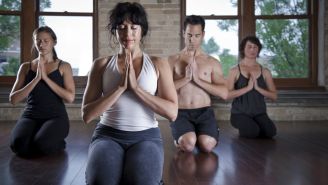
article
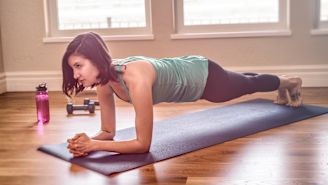
slideshow


video


video
